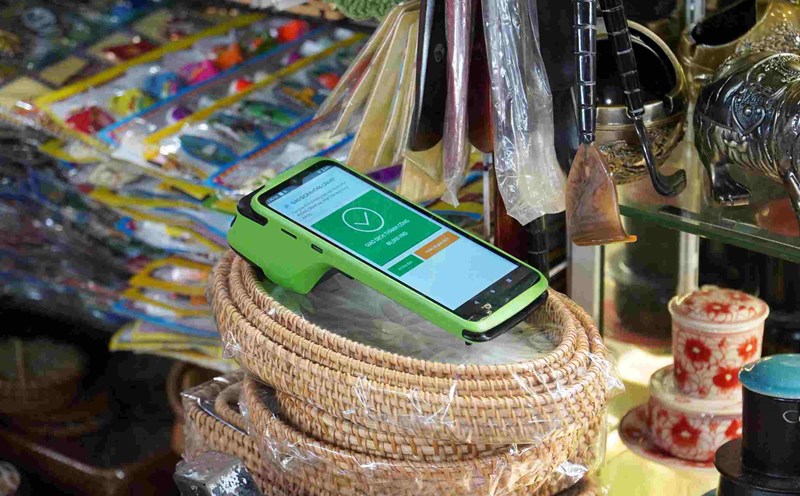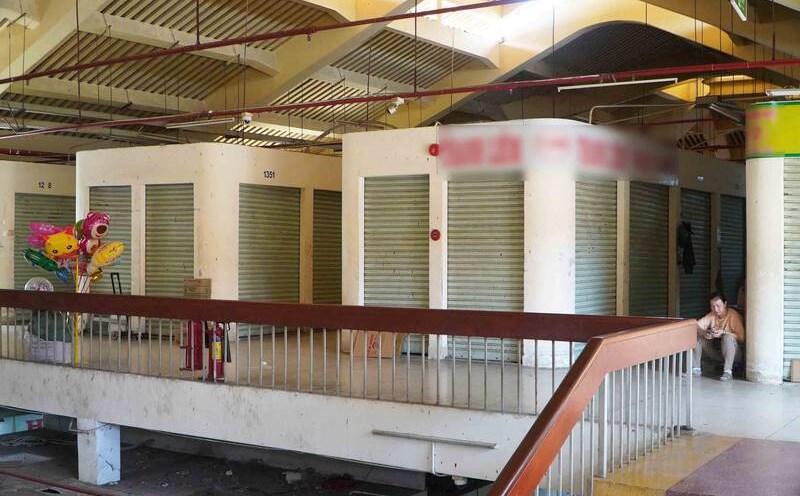Traditional markets need to be modernized
Currently, modern commercial channels nationwide only account for about 25% of the market share, while up to 75% still belong to traditional channels such as traditional markets and grocery stores. Mr. Le Truong Son - Deputy General Director of Saigon Co.op - said that this reality is not only specific to Vietnam, but is also popular in many developed countries such as Singapore or Korea, where traditional market models are still thriving and considered an indispensable part of the urban trade ecosystem.
However, the problem of modernizing traditional markets is not simple. In Ho Chi Minh City, Saigon Co.op was assigned to study the new model at Hoa Binh market and some other markets. However, according to Mr. Son, the biggest problem at present is the current ownership and operation structure - which is fragments, scattered and lacks a proper investment orientation, making it difficult for units to participate in restructuring or investing long-term.
Today, the market is not only a place to buy and sell goods, but also needs to take on the role of a cultural space, serving tourism and connecting the community, said Mr. Son. Therefore, to maintain and develop this role properly, it is necessary to have the participation of professional units, while restructuring the market according to the new urban planning orientation.
Regarding the solution, Mr. Son proposed to classify the market into two main groups. One is a multi-purpose market like Ben Thanh Market, serving both shopping, tourism and culture. The other is the local market, meeting the essential needs of the community, especially workers and low-income groups. Not everyone has the conditions to access modern trade. In many countries, market planning always comes with the development of residential areas" - Mr. Son emphasized.
In addition, upgrading infrastructure is an urgent requirement, as many central markets such as Ben Thanh are seriously degraded. At the same time, it is necessary to ensure food safety standards and strengthen the management of goods quality.
One of the effective directions is to digitize market activities. But instead of applying a rigid model, Mr. Son said that he can learn from Indonesia - a place that allows traders to choose the right digital tool themselves, thereby proactively applying it in goods management and payment, avoiding technological barriers or initial hesitation.
Restructuring commercial space in new super urban area
Since expanding administrative boundaries, Ho Chi Minh City has become a super urban area in both population size and economic activities. However, according to Mr. Bui Ta Hoang Vu - Director of the Department of Industry and Trade of Ho Chi Minh City, the trade - service sector still has many bottlenecks, requiring a new and more synchronous development strategy.
The Ho Chi Minh City Industry and Trade sector has identified 5 key orientations in the coming period: Developing commercial - service space associated with a multi-center urban area, taking advantage of the sea orientation and strengthening regional linkages. Promote comprehensive digital transformation, focusing on traditional markets, cooperatives and small and medium enterprises in improving operations, governance and supply chain connectivity.
Restructuring the supply chain for strategic commodity industries such as agricultural products, food, fast-moving consumer goods, etc., to increase adaptability and sustainability. Developing smart, modern and synchronous trade - logistics infrastructure. Promote regional linkages and form inter-provincial value chains to expand markets and consumption scale.
An equally important factor is understanding the differentiation in consumer behavior of people in each area. Mr. Le Hoang Long, representative of NielsenIQ Vietnam, commented: Buying power in Ho Chi Minh City was already strong, now even greater after the merger. However, to exploit effectively, businesses need to carefully study the consumption characteristics of each region, avoid spreading or applying the same model".
In the context of Ho Chi Minh City making efforts to reshape the appearance of urban trade, traditional markets - although no longer a "star" in the modern supply chain - are still an indispensable part. propusible investment, reasonable and flexible planning in digital transformation are necessary steps to not only preserve but also promote the special role of this type in a modern, multi-centered urban area and towards sustainable development.









